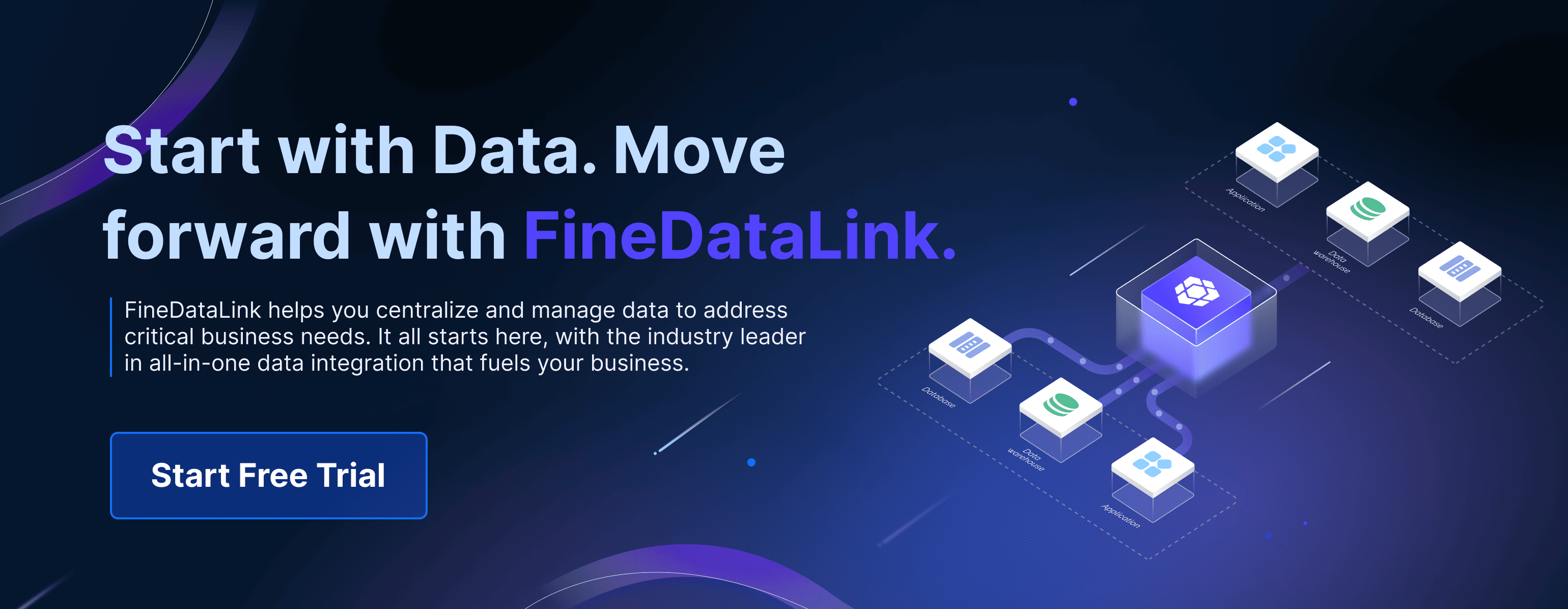

A data owner holds the responsibility for managing and safeguarding data within an organization. This role is crucial as it ensures data is used appropriately and access is controlled. Data ownership fosters accountability, enabling organizations to comply with regulatory requirements and mitigate risks from data breaches. By assigning data ownership, you empower your organization to make informed, data-driven decisions. Tools like FineDataLink, FineReport, and FineBI support data owners in integrating, analyzing, and visualizing data effectively, enhancing collaboration and decision-making across teams.
Understanding the Role of a Data Owner
Definition and Responsibilities of Data Owner
A data owner holds a pivotal role in managing and safeguarding data within an organization. You, as a data owner, bear the responsibility for ensuring that data remains accurate, reliable, and secure. This role involves overseeing data acquisition, storage, and usage, making final decisions about data classification and access.
Key Responsibilities of a Data Owner
- Data Accuracy and Reliability: You must ensure that data is precise and dependable. This involves regular audits and updates to maintain data integrity.
- Data Security: Protecting sensitive information is crucial. Implement security measures like firewalls, encryption, and access controls to safeguard data.
- Compliance with Regulations: Stay informed about relevant laws and policies. Ensure that data handling aligns with these regulations to avoid legal issues.
- Data Classification and Access: You decide how data is categorized and who can access it. This helps in maintaining control over data usage.
Distinction between Data Owner and Data Steward
While both roles are essential, they serve different purposes. As a data owner, you focus on the strategic aspects of data management, such as setting policies and ensuring compliance. In contrast, a data steward handles the operational side, managing day-to-day data activities and ensuring adherence to the owner's guidelines.
Skills and Qualifications of Data Owner
To excel as a data owner, you need a specific set of skills and qualifications. These attributes enable you to manage data effectively and make informed decisions.
Essential Skills for Data Owners
- Analytical Skills: You should possess strong analytical abilities to interpret data trends and make strategic decisions.
- Communication Skills: Effective communication is vital for collaborating with teams and conveying data policies clearly.
- Problem-Solving Skills: You must be adept at identifying data issues and implementing solutions promptly.
Qualifications and Experience Required
Typically, a data owner holds a degree in fields like computer science, information technology, or data management. Experience in data governance or related areas enhances your ability to manage data assets effectively.
Why is Data Owner Important?
Ensuring Data Integrity
Role in Maintaining Data Accuracy
As a data owner, you play a vital role in maintaining data accuracy. You ensure that data remains precise and reliable by implementing regular audits and validation processes. This responsibility involves setting up protocols to verify data accuracy and consistency. By doing so, you help your organization make informed decisions based on trustworthy data.
Impact on Decision-Making Processes
Accurate data significantly impacts decision-making processes. When you maintain data integrity, you provide a solid foundation for strategic planning and operational decisions. Reliable data allows you to identify trends, predict outcomes, and make informed choices. This enhances your organization's ability to respond effectively to market changes and customer needs.
Enhancing Data Security
Protecting Sensitive Information
Data security is a top priority for you as a data owner. You implement security measures such as firewalls, encryption, and access controls to protect sensitive information. These measures prevent unauthorized access and data breaches, safeguarding your organization's valuable assets. By prioritizing data security, you build trust with stakeholders and customers.
Compliance with Data Protection Regulations
Compliance with data protection regulations is essential for your organization. As a data owner, you ensure that data handling aligns with legal requirements. This involves staying informed about relevant laws and implementing policies to meet compliance standards. By doing so, you mitigate risks of legal issues and enhance your organization's reputation.
The Impact of Data Owner on Business Operations

Streamlining Data Management
Efficient Data Handling Practices
As a data owner, you play a crucial role in streamlining data management within your organization. By implementing efficient data handling practices, you ensure that data flows seamlessly across various departments. This involves setting up standardized procedures for data collection, storage, and retrieval. When you establish clear protocols, you minimize errors and enhance the overall efficiency of data operations. Your efforts lead to a more organized data environment, where information is readily accessible and usable.
Reducing Data Redundancy
Data redundancy can pose significant challenges to effective data management. You, as a data owner, take proactive steps to reduce redundancy by identifying and eliminating duplicate data entries. This process not only saves storage space but also improves data accuracy and reliability. By maintaining a single source of truth, you ensure that all stakeholders have access to consistent and up-to-date information. This reduction in redundancy enhances data quality and supports better decision-making processes.
Facilitating Data-Driven Strategies
Supporting Business Intelligence
Your role as a data owner extends to facilitating data-driven strategies that empower your organization. By supporting business intelligence initiatives, you enable teams to harness the power of data for strategic planning. You provide the necessary tools and frameworks for analyzing data trends and patterns. This support allows your organization to gain valuable insights, identify opportunities, and make informed decisions. Your contribution to business intelligence fosters a culture of data-driven decision-making.
Enabling Predictive Analytics
Predictive analytics is a powerful tool that helps organizations anticipate future trends and outcomes. As a data owner, you enable predictive analytics by ensuring that high-quality data is available for analysis. You collaborate with data scientists and analysts to develop models that forecast future scenarios. By leveraging predictive analytics, your organization can proactively address challenges and seize opportunities. This capability enhances your organization's agility and competitiveness in the market.
Challenges Faced by Data Owners
Managing Data Quality
Addressing Data Inconsistencies
You face the challenge of ensuring data consistency across various platforms and systems. Data inconsistencies can arise from multiple sources, such as manual data entry errors or system integration issues. To tackle these inconsistencies, you must implement regular data audits and validation processes. These measures help identify discrepancies and ensure that data remains accurate and reliable. By addressing data inconsistencies, you enhance the overall quality of your organization's data assets.
Implementing Data Quality Standards
Establishing data quality standards is crucial for maintaining high-quality data. You need to define clear guidelines and procedures for data collection, storage, and processing. These standards serve as a benchmark for evaluating data quality and ensuring that it meets the organization's requirements. By implementing data quality standards, you create a structured approach to data management, which helps in minimizing errors and improving data accuracy. This proactive approach ensures that your organization derives maximum value from its data assets.
Navigating Regulatory Compliance
Understanding Legal Obligations
As a data owner, you must stay informed about the legal obligations surrounding data management. Various regulations, such as the General Data Protection Regulation (GDPR), California Consumer Privacy Act (CCPA), and Health Insurance Portability and Accountability Act (HIPAA), impose specific requirements on data handling. You need to understand these obligations to ensure compliance and avoid potential legal issues. By familiarizing yourself with relevant laws and policies, you safeguard your organization against regulatory risks.
Adapting to Changing Regulations
The regulatory landscape is constantly evolving, and you must adapt to these changes. New regulations may introduce additional requirements for data management, necessitating updates to existing policies and procedures. You need to monitor regulatory developments and assess their impact on your organization's data practices. By staying proactive and adaptable, you ensure that your organization remains compliant with current regulations. This adaptability helps mitigate risks and enhances your organization's reputation.
Best Practices for Data Owners
Establishing Clear Data Governance Policies
Defining Roles and Responsibilities
You must define roles and responsibilities clearly within your organization. This clarity ensures that everyone knows their duties regarding data management. Assign specific tasks to individuals or teams, such as data collection, storage, and analysis. By doing so, you create a structured environment where data handling becomes efficient and organized. This approach fosters accountability and minimizes confusion, leading to better data management practices.
Implementing Data Access Controls
Implementing data access controls is crucial for protecting sensitive information. You should establish protocols that determine who can access specific data sets. Use authentication methods like passwords or biometric verification to secure data access. Regularly review and update these controls to adapt to changing security needs. By controlling data access, you safeguard your organization's valuable assets and maintain data integrity.
Leveraging Technology for Data Management
Utilizing Data Management Tools
You can enhance data management by utilizing advanced tools. These tools help automate data processes, reducing manual efforts and errors. Choose software that aligns with your organization's needs, such as data integration platforms or analytics tools. By leveraging technology, you streamline data operations and improve efficiency. This approach allows you to focus on strategic decision-making rather than routine data tasks.
Integrating Automation in Data Processes
Integrating automation into data processes can significantly boost efficiency. You should automate repetitive tasks like data entry or report generation. Use software that offers automation features, such as scheduling or workflow management. Automation reduces the risk of human error and speeds up data processing. By embracing automation, you free up resources and enhance your organization's data management capabilities.
Real-World Examples of Data Owner

Case Study: Successful Data Ownership Implementation
Overview of the Organization
Consider a leading retail company that decided to enhance its data governance framework. You, as a data owner in this organization, played a pivotal role in this transformation. The company recognized the importance of data ownership in ensuring data accuracy, reliability, and security. By establishing clear roles and responsibilities, you helped cultivate trust and confidence in the organization's data assets.
Key Outcomes and Benefits
- Improved Data Accuracy: You implemented regular audits and validation processes, which significantly improved data accuracy. This ensured that decision-makers had access to reliable information.
- Enhanced Data Security: By setting up robust security measures, you protected sensitive information from unauthorized access. This proactive approach reduced the risk of data breaches.
You established standardized procedures for data handling, which streamlined operations across departments. This led to more efficient data management practices.
Your efforts in maintaining data integrity and security built trust with stakeholders, enhancing the organization's reputation.
Lessons Learned from Data Ownership Failures
Common Pitfalls and Mistakes
- Lack of Clear Roles: Without clearly defined roles and responsibilities, data management becomes chaotic. You may face confusion and inefficiencies in handling data.
- Inadequate Security Measures: Failing to implement robust security protocols can lead to data breaches. You risk exposing sensitive information to unauthorized access.
- Neglecting Data Quality Standards: Ignoring data quality standards results in inconsistencies and errors. This undermines the reliability of your data assets.
- Resistance to Change: You may encounter resistance when introducing new data governance practices. This can hinder the successful implementation of data ownership.
Strategies for Improvement
- Define Clear Roles: Establish specific roles and responsibilities for data management. This clarity ensures efficient data handling and minimizes confusion.
- Implement Robust Security Protocols: Set up comprehensive security measures to protect sensitive information. Regularly update these protocols to adapt to evolving threats.
- Adopt Data Quality Standards: Define and enforce data quality standards to maintain high-quality data. Regular audits and validation processes help ensure data accuracy.
- Foster a Culture of Change: Encourage a culture that embraces change and innovation. Provide training and support to help teams adapt to new data governance practices.
Future Trends in Data Owner
Evolving Role of Data Owners
Impact of Emerging Technologies
Emerging technologies continue to reshape the landscape of data management. As a data owner, you must adapt to these changes to stay relevant. Technologies like artificial intelligence (AI) and machine learning (ML) offer new ways to analyze and interpret data. They enable you to automate routine tasks and uncover insights that were previously hidden. By embracing these technologies, you can enhance your ability to manage data effectively and make informed decisions.
Moreover, the rise of the Internet of Things (IoT) has led to an explosion of data from various sources. You need to develop strategies to handle this influx of data efficiently. This involves implementing systems that can process and analyze large volumes of data in real-time. By doing so, you ensure that your organization remains competitive in a data-driven world.
Adapting to New Data Challenges
New data challenges arise as technology evolves. You must be prepared to address issues such as data privacy and security. With the increasing amount of data being collected, protecting sensitive information becomes more critical. Implementing robust security measures and staying informed about the latest threats is essential for safeguarding your organization's data assets.
Additionally, you need to navigate the complexities of data integration. As data comes from diverse sources, ensuring consistency and accuracy becomes challenging. You must establish clear protocols for data integration to maintain data quality. By addressing these challenges, you enhance your organization's ability to leverage data for strategic purposes.
The Growing Importance of Data Ethics
Ethical Considerations in Data Management
Data ethics play a crucial role in modern data management. As a data owner, you must consider the ethical implications of data usage. This involves ensuring that data is collected and used responsibly, respecting individuals' privacy rights. You need to establish guidelines that promote ethical data practices within your organization.
Moreover, transparency is key to building trust with stakeholders. You should communicate clearly about how data is collected, stored, and used. By fostering an environment of openness, you enhance your organization's reputation and build trust with customers and partners.
Promoting Responsible Data Use
Promoting responsible data use is essential for maintaining ethical standards. You should encourage a culture of accountability within your organization. This involves educating employees about the importance of ethical data practices and providing training on data protection measures.
Furthermore, you need to implement policies that prevent misuse of data. This includes setting up monitoring systems to detect and address any unethical behavior. By promoting responsible data use, you ensure that your organization remains compliant with regulations and maintains a positive image in the industry.
FanRuan's Role in Supporting Data Owners
FanRuan provides essential tools that support data owners in managing and analyzing data effectively. These tools help you address common challenges and enhance your organization's data capabilities.
FineDataLink for Data Integration
FineDataLink plays a crucial role in integrating data across various platforms. It helps you tackle data silo issues and manage complex data formats efficiently.
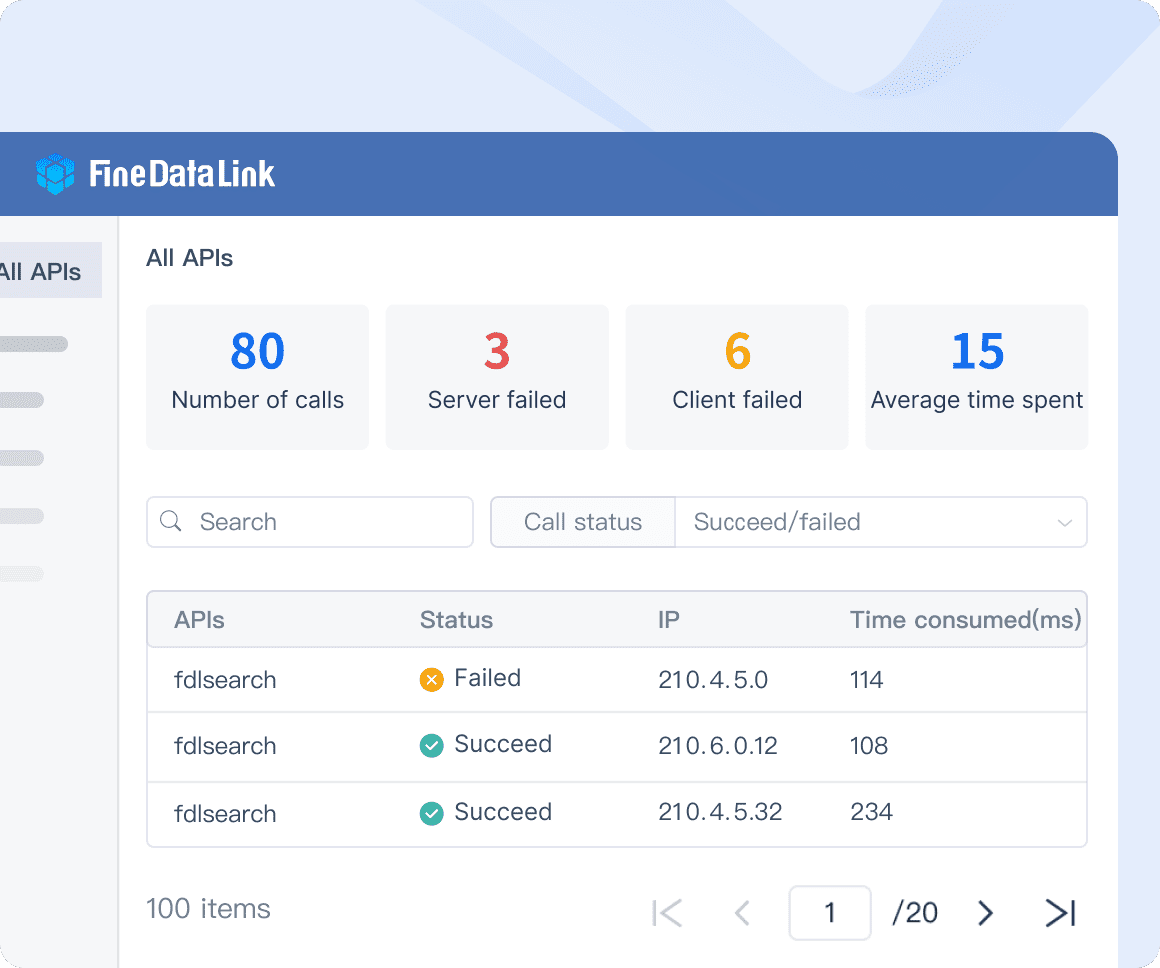
Addressing Data Silos and Complex Formats
Data silos can hinder your ability to access and integrate information. FineDataLink breaks down these silos by enabling seamless data integration. You can connect data from different sources, ensuring a unified view of your organization's information. This integration simplifies data management and enhances accessibility.
Complex data formats often pose challenges in data handling. FineDataLink addresses this by supporting diverse data formats, such as CSV, XML, and JSON. You can easily transform and map these formats, reducing manual efforts and errors. This capability streamlines your data processes and improves overall efficiency.
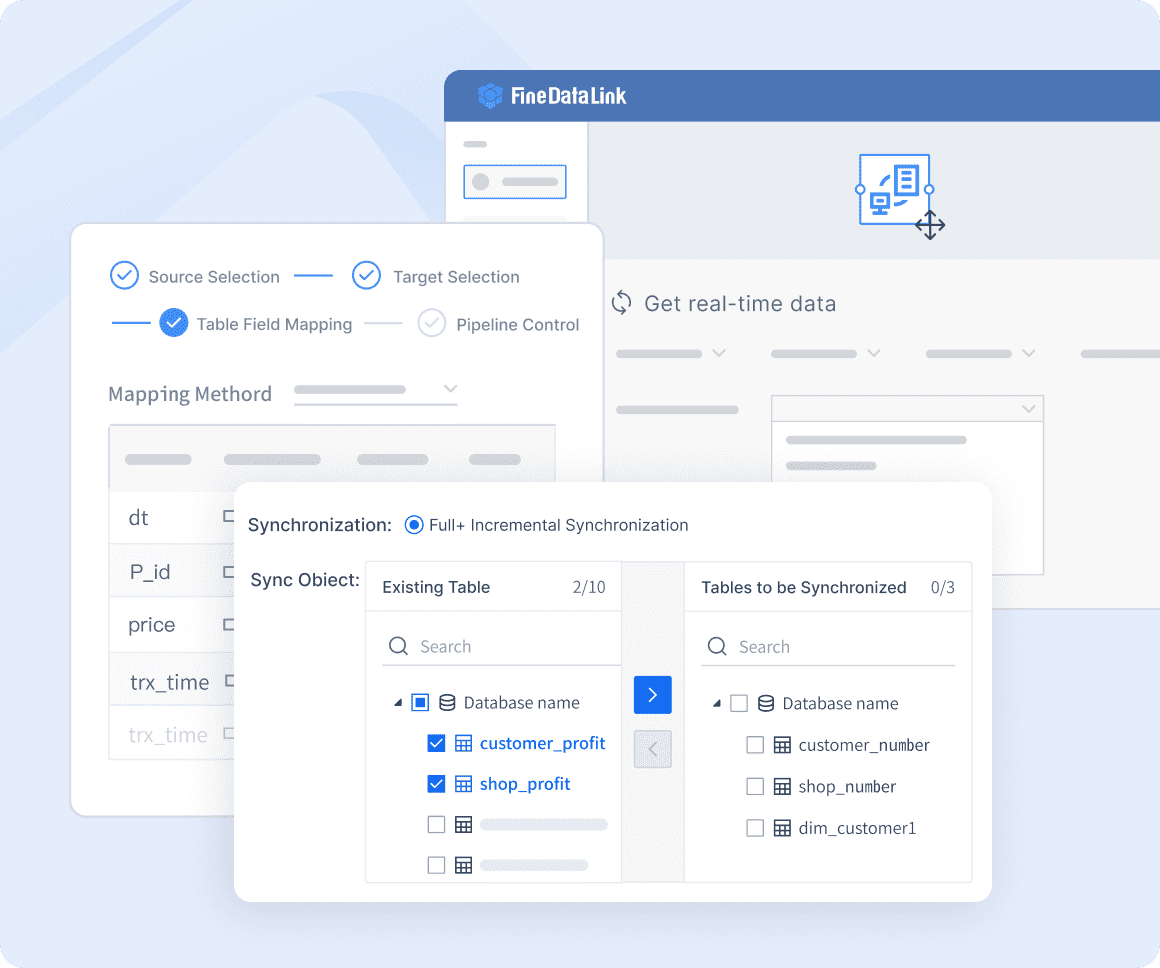
Enhancing Data Quality and Governance
Maintaining high data quality is essential for informed decision-making. FineDataLink enhances data quality by providing tools for data validation and cleansing. You can implement regular audits and checks to ensure data accuracy and reliability. This proactive approach minimizes errors and enhances the trustworthiness of your data assets.
Data governance is crucial for managing data responsibly. FineDataLink supports governance by offering features like data access controls and compliance monitoring. You can define roles and responsibilities, ensuring accountability in data management. This structured approach fosters a culture of responsibility and enhances data security.
FineReport and FineBI for Data Analysis
FineReport and FineBI empower you to analyze data effectively, facilitating business intelligence and real-time insights.
Facilitating Business Intelligence
Business intelligence relies on accurate data analysis. FineReport provides tools for creating detailed reports and dashboards. You can visualize data trends and patterns, gaining valuable insights for strategic planning. This capability supports data-driven decision-making and enhances your organization's competitiveness.
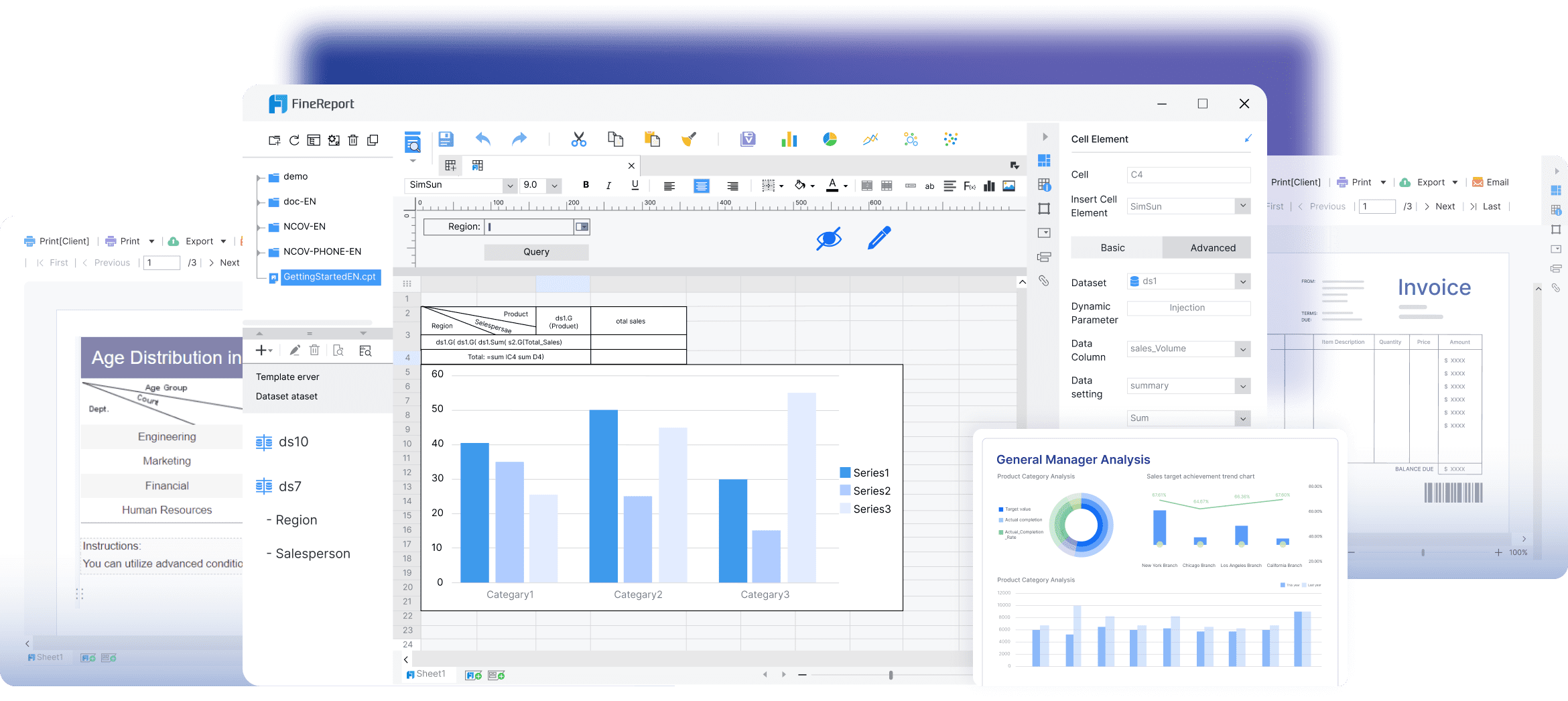
FineBI offers self-service analytics, enabling you to explore data independently. You can connect to various data sources and perform in-depth analysis without relying on IT support. This flexibility empowers you to make informed decisions quickly and efficiently.
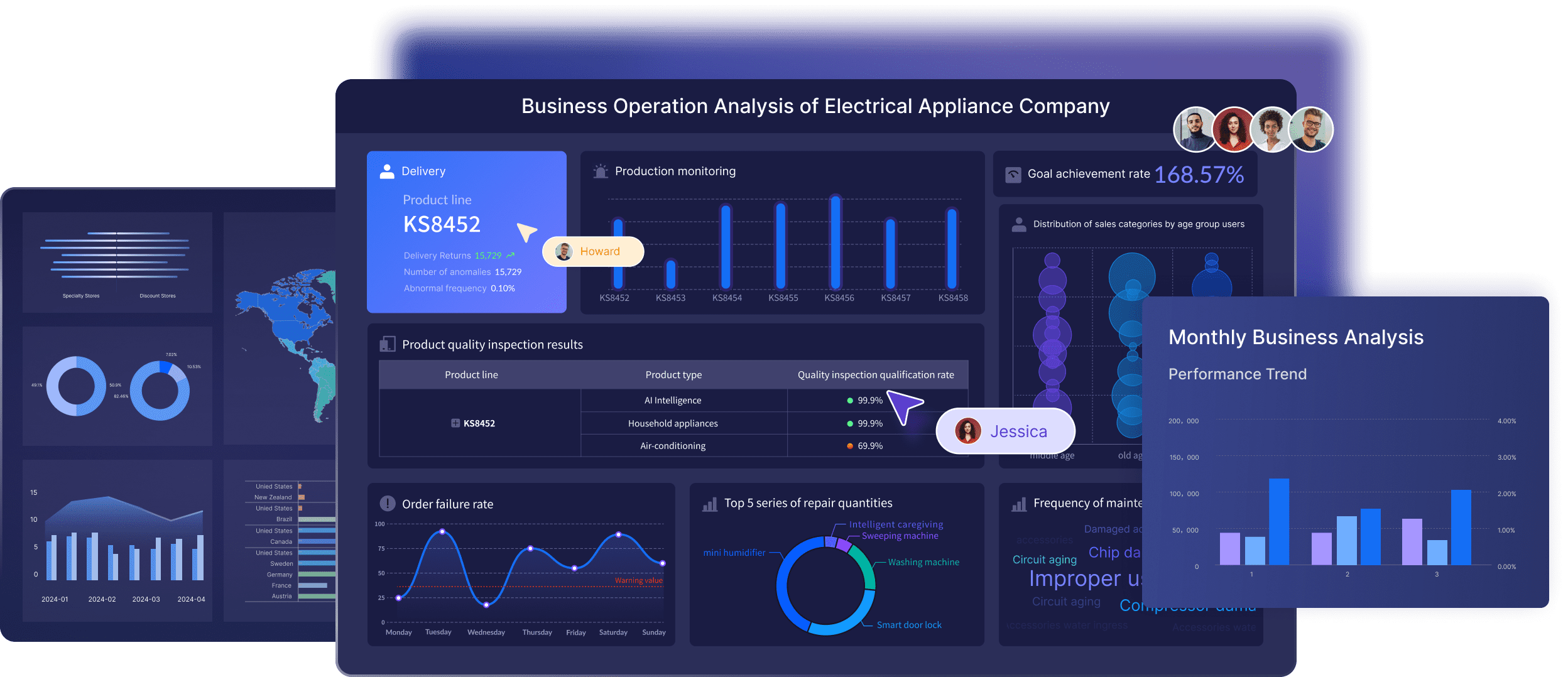
Enabling Real-Time Data Insights
Real-time data insights are crucial for staying competitive in today's fast-paced environment. FineBI supports real-time analysis, allowing you to access up-to-date information instantly. You can monitor key performance indicators and respond promptly to changing conditions. This capability enhances your organization's agility and decision-making processes.
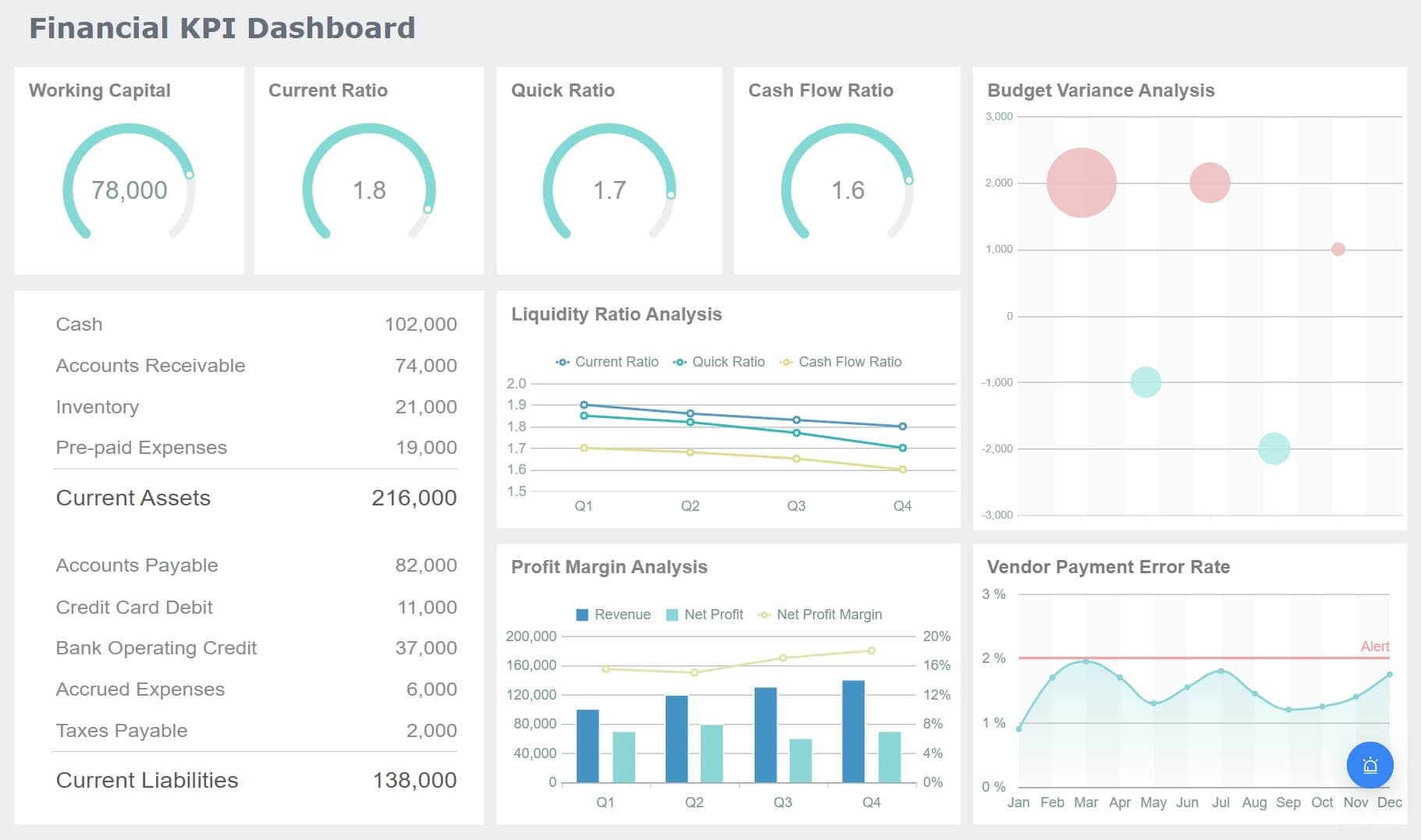
FineReport also facilitates real-time reporting, ensuring that stakeholders have access to the latest data. You can automate report generation and distribution, saving time and reducing manual efforts. This efficiency enhances your organization's ability to make timely and informed decisions.
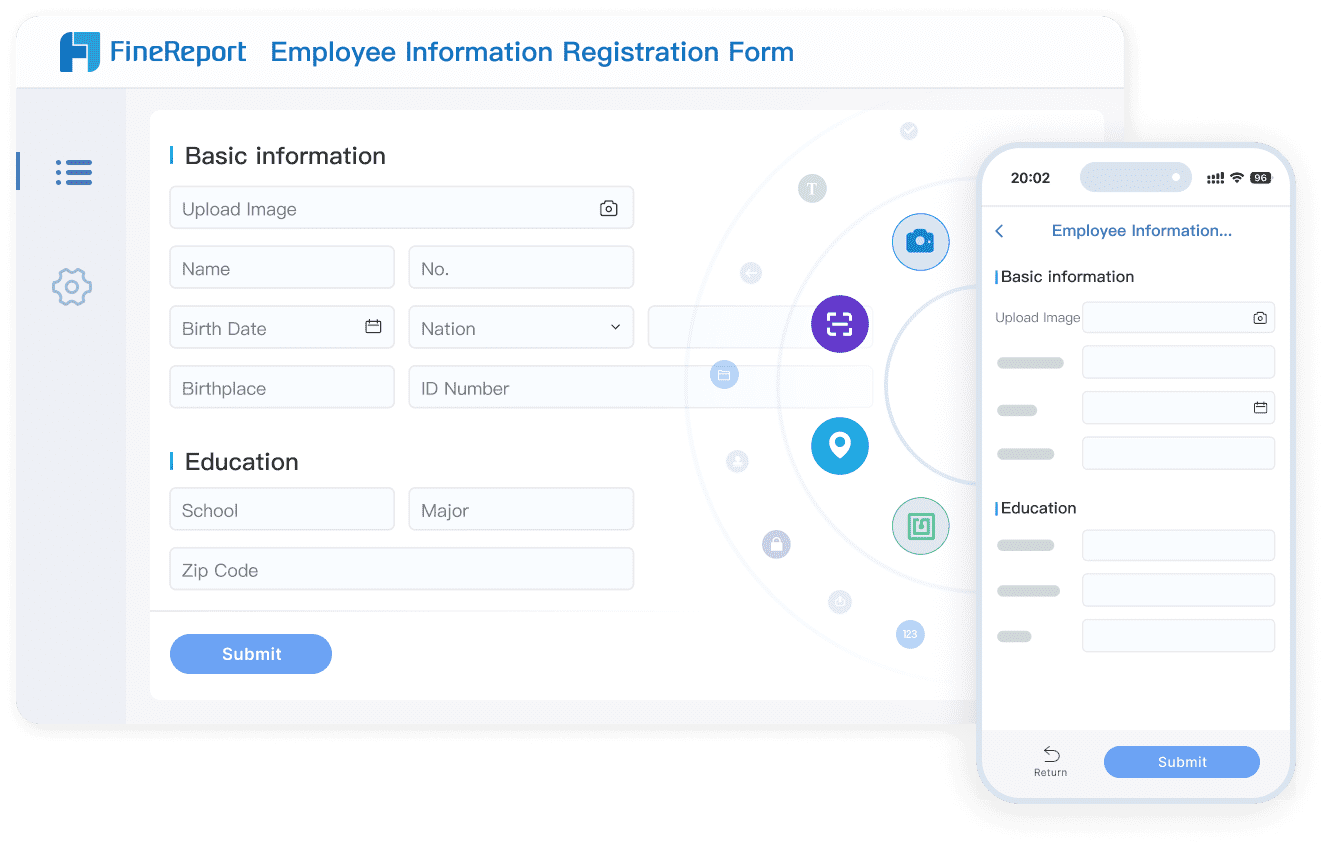
FineReport supports data entry functionality.
Data ownership is vital for ensuring data privacy, security, and integrity. By taking charge of data, you safeguard sensitive information and reduce the risks of breaches. This responsibility provides accountability and fosters trust within your organization. As the role of data owners evolves, you must adapt to new challenges and technologies. Prioritizing data ownership empowers you to maintain data accuracy and reliability. Encourage your organization to embrace clear ownership. This approach enhances transparency and supports informed decision-making, ultimately driving strategic growth.
FAQ
Data ownership refers to the authority and responsibility you have over specific data sets within an organization. As a data owner, you decide who can access, modify, and distribute the data. This role ensures data accuracy, reliability, and security.
Data ownership is crucial for effective data governance. It clarifies rights and responsibilities, ensuring that data is managed properly. By establishing clear ownership, you enhance data integrity and facilitate better decision-making processes.
Data ownership plays a vital role in data governance by ensuring accountability and responsibility for data assets. You, as a data owner, define data policies, maintain data quality, and facilitate data access while safeguarding sensitive information.
Data owners encounter several challenges, including managing data quality, navigating regulatory compliance, and addressing data privacy concerns. Emerging technologies like blockchain and IoT also introduce new complexities in data ownership.
Technology provides valuable tools for data owners to manage and analyze data effectively. Platforms like FineDataLink, FineReport, and FineBI support data integration, analysis, and visualization, enhancing your organization's data capabilities.
While both roles are essential, they serve different purposes. As a data owner, you focus on strategic aspects like setting policies and ensuring compliance. A data steward handles operational tasks, managing day-to-day data activities and adhering to your guidelines.
Data ownership involves understanding and complying with data privacy regulations. You must ensure that data handling aligns with legal requirements, such as GDPR and CCPA, to protect sensitive information and avoid legal issues.
Clear data ownership fosters accountability and responsibility, ensuring data remains accurate, reliable, and secure. It enhances data governance, supports informed decision-making, and builds trust with stakeholders.
Continue Reading About Data Owner
2025 Best Data Integration Solutions and Selection Guide
Explore top data integration solutions for 2025, enhancing data management and operational efficiency with leading platforms like Fivetran and Talend.
Howard
Dec 19, 2024
2025 Data Pipeline Examples: Learn & Master with Ease!
Unlock 2025’s Data Pipeline Examples! Discover how they automate data flow, boost quality, and deliver real-time insights for smarter business decisions.
Howard
Feb 24, 2025
2025's Best Data Validation Tools: Top 7 Picks
Explore the top 7 data validation tools of 2025, featuring key features, benefits, user experiences, and pricing to ensure accurate and reliable data.
Howard
Aug 09, 2024
Best Data Integration Platforms to Use in 2025
Explore the best data integration platforms for 2025, including cloud-based, on-premises, and hybrid solutions. Learn about key features, benefits, and top players.
Howard
Jun 20, 2024
Best Data Management Tools of 2025
Explore the best data management tools of 2025, including FineDataLink, Talend, and Snowflake. Learn about their features, pros, cons, and ideal use cases.
Howard
Aug 04, 2024
Business Data Analyst vs Business Analyst Key Differences Explained
Compare business data analyst vs business analyst roles, focusing on key differences, responsibilities, skills, and career paths to guide your career choice.
Lewis
Mar 11, 2025


